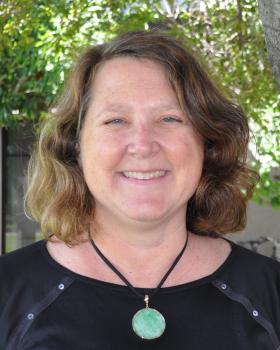University of California, Berkeley | Plant & Microbial Biology
MWildermuth

- Principal Investigator
Postdoctoral Fellow Molecular Genetics of Plant-Microbe Interactions
Dept of Molecular Biology, Mass General Hospital/Harvard Medical School, Boston, MA. 1998-2003
Ph.D. Subcellular localization and biochemical regulation of foliar isoprene emission
Biochemistry, University of Colorado at Boulder, Boulder, CO. 1997
Visiting Scientist Non-methane hydrocarbon emissions from plants
Atmospheric Chemistry Division, National Center for Atmospheric Research, Boulder, CO. 1991-1993
B.S. Chemical Engineering, Cornell University, Ithaca, NY.

In my laboratory, we generate, analyze, and integrate biological information across disciplines to 1) discover host processes of importance to an interaction through the use of systems-level data, 2) uncover the process components and their regulation through detailed biochemical, molecular genetic, cell biological, and genomic analyses, and 3) elucidate the functional role of a process in the context of a given plant pathosystem using theoretical, informatic, and experimental approaches. We then assess our findings in a broader context to determine common and divergent plant host mechanisms and associated control points across pathosystems and to inform our understanding of fundamental biological processes.
We are particularly interested in integrating data from our lab with that of others to gain a holistic understanding of processes of importance to the sustained growth and reproduction of an adapted powdery mildew pathogen on Arabidopsis. As an obligate biotroph, powdery mildews can only grow and reproduce on plants and obtain all nutrients from the plant. Current projects in the laboratory continue our work on the regulation and function of the stress hormone salicylic acid and induced host endoreduplication and storage lipid formation associated with the sustained external growth and reproduction of the powdery mildew on Arabidopsis. We also continue to employ systems-level analyses to define new host processes of importance to this pathosystem.
We thank UC Berkeley, the National Science Foundation, the Environmental Protection Agency, the Winkler Family, the American Vineyard Foundation, the Gloeckner Foundation, and the CA Department of Pesticide Regulation for funding.
Faculty Mentoring of Graduate Research Instructors Award, Graduate Division, UC Berkeley, 2021
Extraordinary Teaching in Extraordinary Times, Distinguished Teaching Award, UC Berkeley, 2020
UC Berkeley Chancellor's Community Partnership Award for Be A Scientist Program, UC Berkeley, 2019
Distinguished Community Partner Award – Be A Scientist Program, Berkeley Public Schools Fund, Berkeley, CA, 2017
UC Bakar Fellow, Entrepreneurship Award, 2013-2018
National Science Foundation, Creativity Grant Award, 2013
Winkler Family Foundation Award - Winkler Family Foundation - 2007
Presidential Chair Fellow - University of California, Berkeley - 2005
Neish Young Investigator Award - Phytochemistry Society of North America - 2005
USDA National Research Initiative Award, Postdoctoral Fellowship - USDA - 2000
NIAID Mechanisms in Bacterial Pathogenesis, Postdoctoral Fellowship - Harvard Medical School - 1998
NSF Biosphere/Atmosphere Interactions Graduate Student Equipment Award, University of Colorado, Boulder, 1996-1997
MCB102, Survey of the Principles of Biochemistry and Molecular Biology (4 units), Metabolism third.
PMB112L, Experimental Plant Biology Lab (3 units). Capstone, discovery-based lab for upper-division Genetics & Plant Biology majors.
